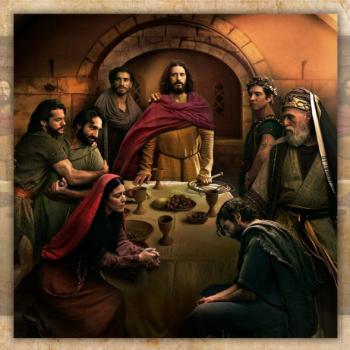Last Sunday was the first Sunday of Advent. I've written about Advent before and mentioned that most Mormons don't celebrate it. But like many others in relatively nonliturgical denominations, some of us would like a more formal aspect to our religious lives, even if it isn't part of our weekly church worship.
For example, Eric D. Huntsman, a religion professor at Brigham Young University, celebrates Advent with his family, creating his own lectionary readings based on a traditional theme for that week of Advent. I imagine that some of those who read Huntsman's posts on his family's Advent celebration will follow along.
Like Huntsman's, my celebration of Advent includes scriptures from the Book of Mormon, but it hews more closely to the Catholic lectionary than Huntsman's does. "Cafeteria Advent" being what it is, I feel free to pick and choose what I wish. So in this column and the next several, I will offer reflections on Advent, this time for both the first and the second Sundays, after this for each Sunday to come.
November 27
1st Sunday of Advent
Isaiah 64:4-8: Since the beginning of the world men have not heard, nor perceived by the ear, neither hath the eye seen, O God, beside thee, what he hath prepared for him that waiteth for him. Thou meetest him that rejoiceth and worketh righteousness, those that remember thee in thy ways: behold, thou art wroth; for we have sinned: in those is continuance, and we shall be saved. But we are all as an unclean thing, and all our righteousnesses are as filthy rags; . . . But now, O Lord, thou art our father; we are the clay, and thou our potter; and we all are the work of thy hand.
Psalm 80:3, 18-19: Turn us again, O God, and cause thy face to shine; and we shall be saved. . . . Quicken us, and we will call upon thy name. Turn us again, O Lord God of hosts, cause thy face to shine; and we shall be saved.
To know God is also to know of my unworthiness before him: "All have sinned, and come short of the glory of God" (Rom. 3:23). But to remember my unworthiness is to glory in him rather than to wallow in my sorrow for sin. It is to know that he has come and that he will come again.
The Lord's coming is not merely an event in the past or one in the future. It is both of those but also more. I wait for his coming by recognizing that he has already come, not only into the world as a babe, but also into my life as my Savior. To hope for the coming of the Lord is to be quickened now, made newly alive in the new life of the Gospel.
1 Corinthians 1:3-8: Grace be unto you, and peace, from God our Father, and from the Lord Jesus Christ. I thank my God always on your behalf, for the grace of God which is given you by Jesus Christ; that in every thing ye are enriched by him, in all utterance, and in all knowledge; even as the testimony of Christ was confirmed in you: so that ye come behind in no gift; waiting for the coming of our Lord Jesus Christ: who shall also confirm you unto the end, that ye may be blameless in the day of our Lord Jesus Christ.
Quickened by Christ's coming—past, future, present—we live in his grace and peace. We are made rich by him. Having left the world behind, we nevertheless remain within it, strangers to it. But our strangeness to the world enriches us by giving us the world back as something new, a place in which what we say and know and do is made strong by him, even if it remains weak in the eyes of many around us. Quickened, brought to new life, by the coming of the Lord, we live in a world in which we may be blameless at his coming.
Moroni 7:40-41: What is it that ye shall hope for? Behold I say unto you that ye shall have hope through the atonement of Christ and the power of his resurrection, to be raised unto life eternal, and this because of your faith in him according to the promise.





